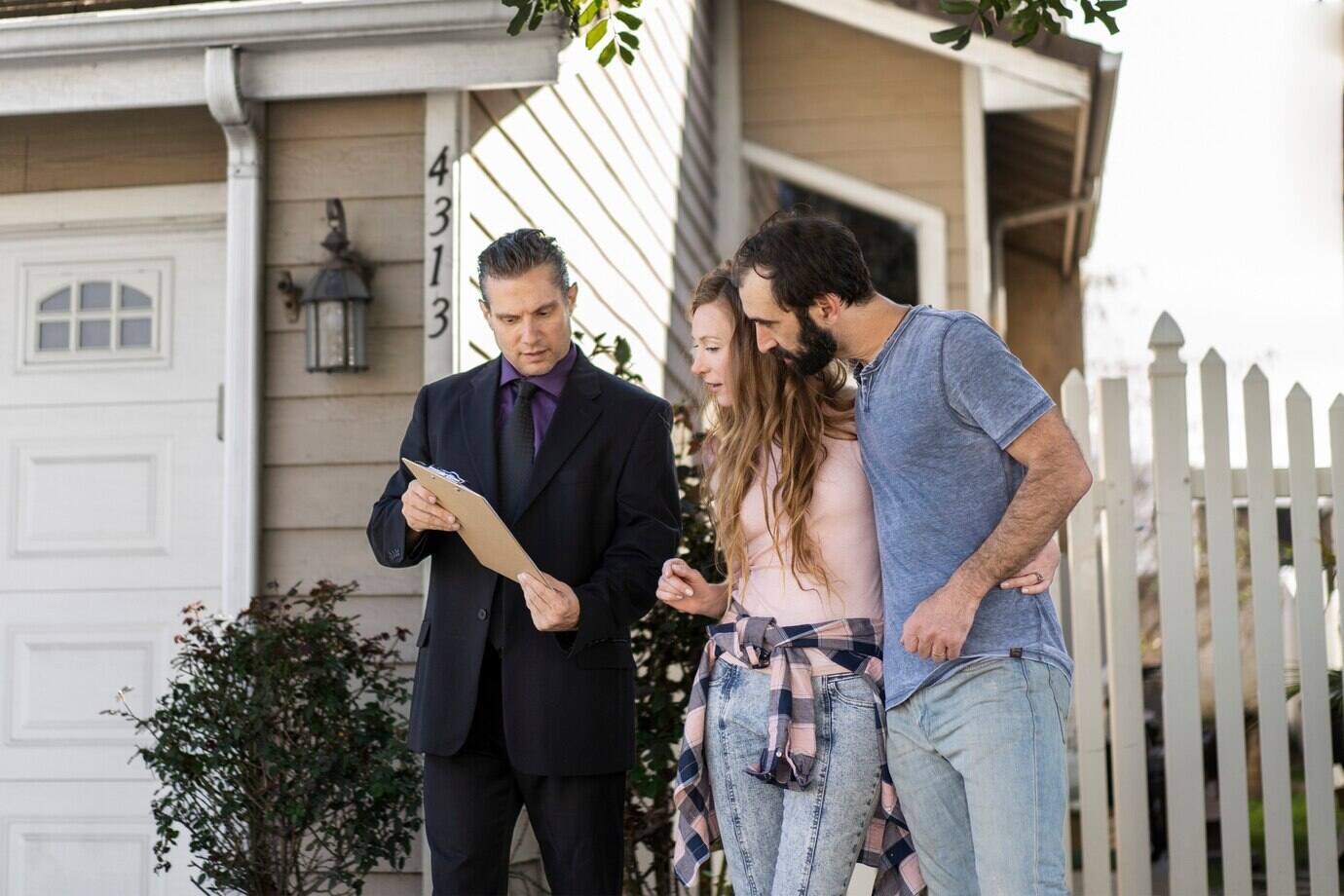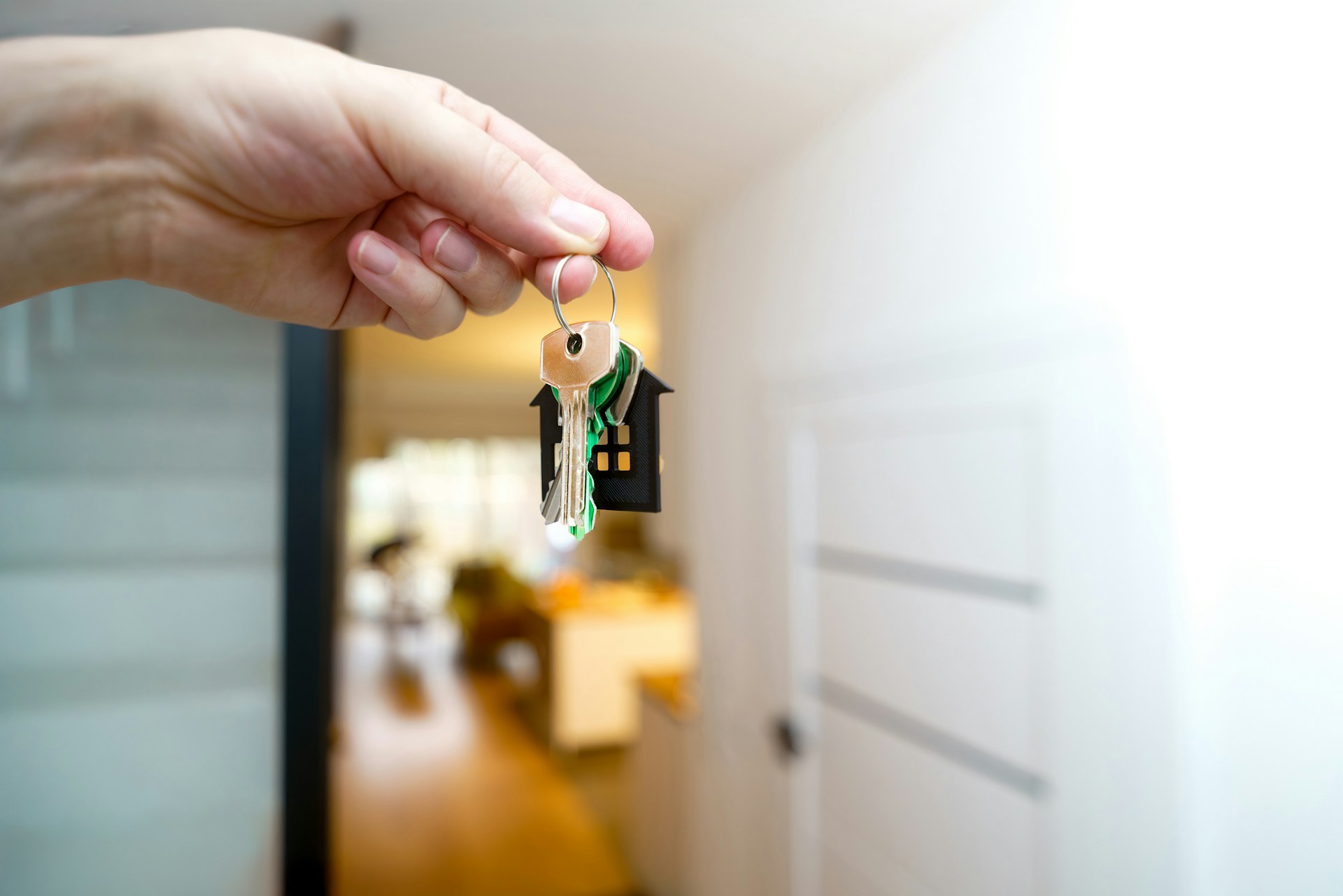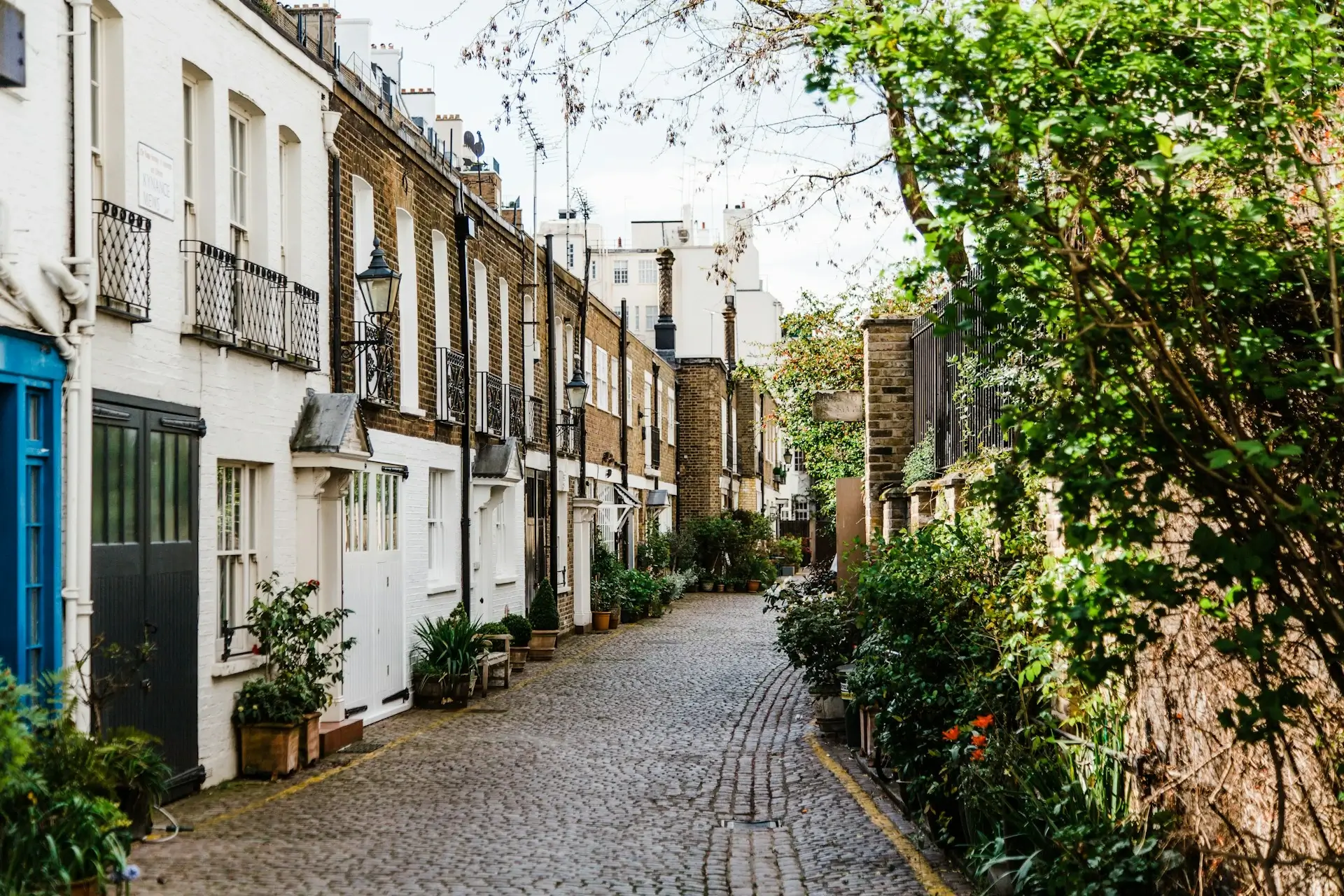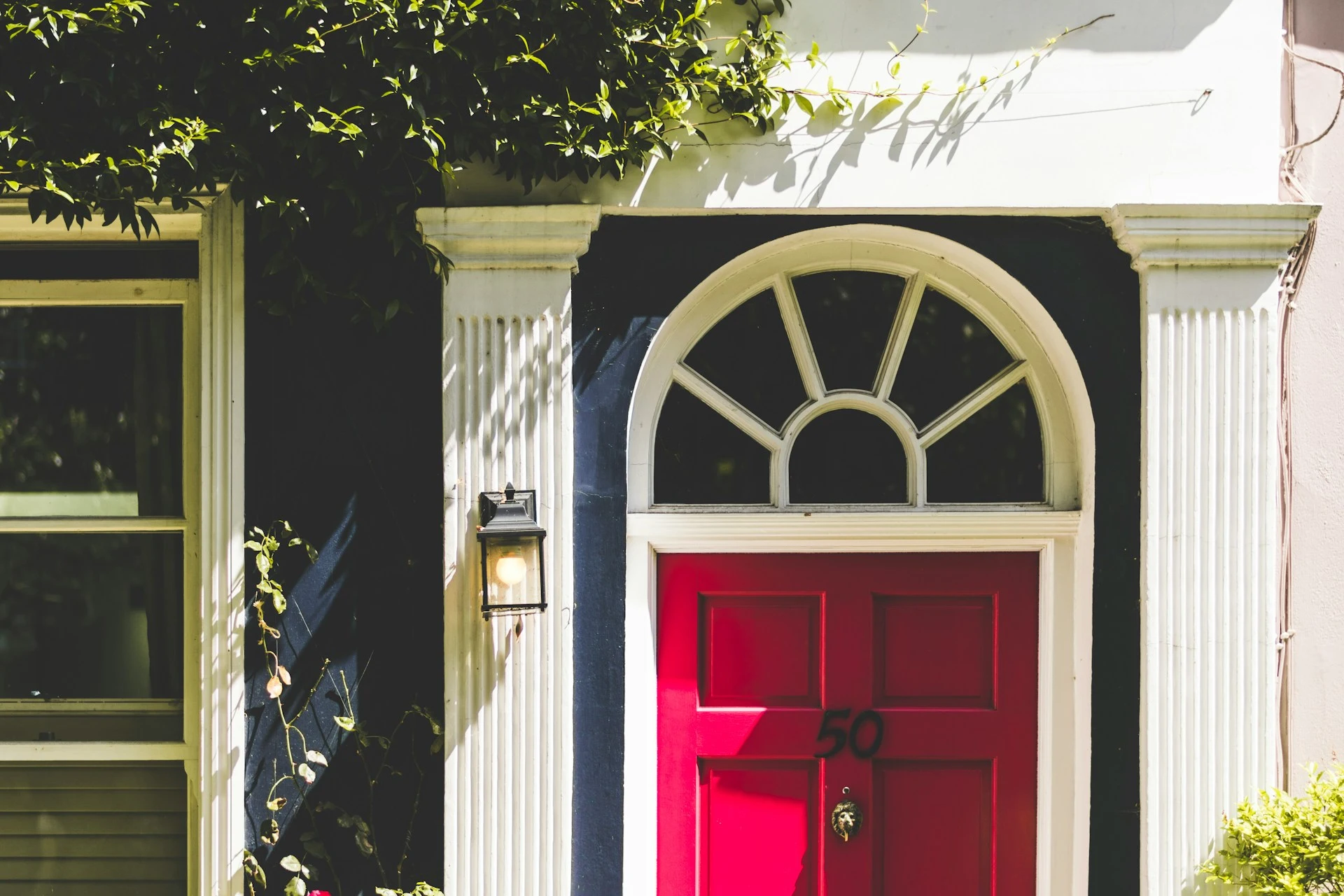Buying a house in the UK can be challenging if you do not have the detailed information to streamline the process. The options are wide, but finding the one that suits you best is stressful. You need to figure out your budget, find the perfect place for you, and deal with the legal processes.
To complete the steps to buying a house in the UK, you can continue reading our article. Considering the questions in your mind, we have gathered the key points from assessing your budget to post-purchase essentials.
Step-by-Step Process: How to Buy a House in the UK?
Purchasing a house equals countless steps to complete and endless decisions to make especially if you are a first time home buyer in the UK. However, there is no need to worry when you follow the basic steps to buying a house in the UK. Now, let’s look at them with our step by step guide.
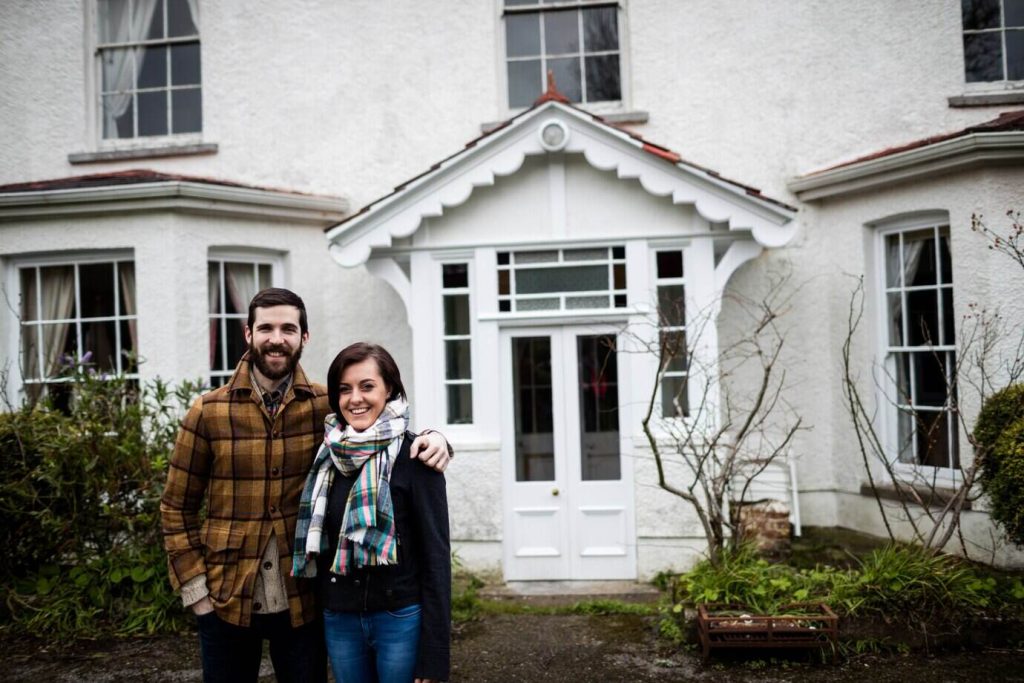
Step 1: Assess Your Budget and Financial Readiness
Deciding what you want and how much you can afford is one of the most significant steps for the process of buying a house in England. You must decide on the neighbourhoods, the space you will need, and your budget. If you have a family, you need a larger space to reside. On the contrary, if you live alone, the small apartments can be suitable for you. According to these, the prices can change.
As a buyer, you will typically require %5 deposit for a mortgage. Having a more deposit will bring you cheaper mortgage deals. For first time buyers, if you have a Lifetime ISA, you can increase your deposit up to %25.
In general, mortgage lenders will let you borrow 4.5 or 5.5 times of your salary. For example, if your monthly salary is £10,000, you will probably receive £45.000. There is also a possibility of showing joint income. Besides, lenders will ask you:
- Your outgoing expenses
- To show an equity if you have a house, or your savings
These are to assess your financial status and if you can make monthly mortgage payments or not. Note that if you are a first time buyer in the UK, you can only use your income and deposit.
Step 2: Get a Mortgage Agreement in Principle (AIP)
To obtain a mortgage offer, you can start by checking your mortgage credit report to prove to the mortgage lender that you can repay the loan. This report covers at least 6 months of your financial history, with your last mortgage payments, credits, and loans.
Besides, you can follow up to these points to get a better credit rating for the best mortgage rate:
- Check if the information in your credit report is true or false. If it contains false information, you can call the agency or contact your lender. If this does not help you, you can complain to the Financial Ombudsman Service.
- Register yourself to vote. This will increase your chances whether you are a UK, US or EU citizen.
- If you join a joint credit before and your partner has a bad credit history, you must de-link yourself immediately.
- Be careful that you do not have much credits left. If there is, make sure there is a balance.
- Consider closing your old accounts. It may leave a negative mark.
- Make sure you pay your bills on your time.
- Decrease your spendings before you talk to mortgage advisers. So that, they can check if you will be paying the mortgage.
- Properly and quickly fill in the forms and bring necessary documents with you.
After careful consideration, you will get a Decision in Principle, valid for 30-90 days. Although it does not guarantee you your application is approved, you will get a clear understanding of your available options. In the meantime, you can check out the market for a better interest rate if the proposal does not suit you. Once you find the best option for you, go and take it.
Step 3: Start Your Property Search
Finding the perfect property is the life long decision. Therefore, you must carefully consider your needs and ups and downs of a specific property. On your way to determine, here is the checklist you can control:
- Search the real estate market, contact real estate agents.
- Visit and explore as many options as you can.
- Ask whether the property is leasehold or freehold. Here, the freehold means the land and building belong to you indefinitely while the leasehold property means that the house belongs to you, not the land based on the agreement you hold with the leaseholder.
- Ask yourself where you want to live. For example, if you are working in the finance sector, it will be best to move to London. On the contrary, you can consider rural areas if you work remotely.
- Check out the transportation services. Are there any routes for your school, work or else?
- Question yourself whether you want to live in a house or flat.
- Decide on if you prefer living in a new building or second hand. Note that it will also depend on your budget as new buildings are more expensive than second hands.
- Calculate how much space and room you will need.
- Check out Energy Performance Certificate or EPC.
- Evaluate the condition of the house. Will it need improvement? Can you immediately move?
- Control the internet speed if you are a freelancer or remote worker.
- Make sure you know and accept the drawbacks of the house. While you think the price is pretty good, you can later discover that it is near a railroad station, far away from the main utilities, or high crime rates.
Questions you need to ask real estate agent
To make a well-informed decision, it’s important to ask the right questions. Here are some crucial ones to consider:
- Why does the owner sell the house? The answer to this question matters because you may learn that the owner is in need of quick selling and you may offer lower than purchase price. You can think of this question as an affordability assessment.
- How long has the house been in the property market? If it has been too long, ask the landlord why it is not sold. With this information, you can conclude if there is a problem with it or the price may be higher.
- Has the value of property increased or decreased?
- Have the property owners sold it a lot? If it frequently changes hands, it might hint that it has a problem.
- What is the minimum price the seller will accept?

Step 4: Make an Offer
Once you have found a property that meets your needs, the next step is to make an offer. Start by assessing the value of the property based on the market research you have done. If you are planning to obtain a mortgage, you can consult your mortgage broker at this step. They can give you a clearer idea of what you can afford.
You can start your negotiation with an offer slightly below your budget. So that you make a good deal. After you submit your offer, the seller may accept it, reject it, or come back with a counteroffer. Therefore, you need to be open to negotiate.
Even if your offer is accepted, the deal is not closed until you sign contracts. In 2024, sellers accepted a better offer or changed their mind and nearly 30% of sales were off. To avoid this, you may consider getting home buyers protection insurance.
Step 5: Apply for a Full Mortgage
Right after you get your offer accepted, you can start your mortgage application. This means you are asking the lender for the money to buy the home.
If you already got a Mortgage Agreement in Principle, this will help your application go faster. The lender will now check:
- The property’s value (with a mortgage valuation survey)
- Your income and job details
- Your spending and debts
- If the property is safe to lend money on
You will need to give documents like payslips, bank statements, and ID. If everything looks good, they will give you a mortgage offer. This usually lasts for 3 to 6 months.
Once you get the offer, your solicitor or conveyancer can move forward with the legal steps.
Step 6: Hire a Solicitor or Conveyancer
After your offer is accepted, it is time to take legal steps to buying a house. You need to hire a conveyancing solicitor or conveyancer to help with the legal work. A solicitor is a lawyer who deals with many types of legal work while a conveyancer specializes in buying or selling a house. To decide on which one to choose, you can ask yourself these questions before conveyancing process:
- Do you need full legal services? If so, you can opt for a solicitor.
- Do you look at affordable options? Hiring a conveyancer can be less expensive than solicitors.
- Is your case complicated? Then, you will need the perspective of a solicitor.
Depending on your decision, conveyancing fees might change. While buying a house, you need to pay approximately £500-1150. While selling a house, you typically need to make a payment of £610-£950. Plus, there might be additional expenses such as local authority searches, land registry fee and bank transfer fees.
Do you have to hire a solicitor or conveyancer?
Hiring a solicitor or conveyancer is an option, not an obligation. Thus, you can carry out the whole house buying process on your own too. However, it might be hard for you to keep up with checking the property if it has any legal problems and preparing necessary paperwork.

Step 7: Conduct House Surveys and Property Checks
Before you buy the house, it is a good idea to check the condition of the property. You can pay for a home survey to find problems like damp, roof damage, or plumbing issues. This will generally cost £400 for a basic plan and £ 1,500 or more for a comprehensive plan.
There are different types of survey reports, from basic to detailed. They can help you avoid big repair or maintenance costs later. If they find problems, you can ask the seller to fix them or lower the price.
Step 8: Exchange Contracts
Once everything is ready and both sides agree, you and the seller sign and exchange contracts.
This is the moment when the sale becomes legal. You must also pay your deposit for a house in the UK (usually 5–10% of the price) now.
After this, you cannot change your mind without losing money, so make sure everything is correct before signing.
Step 9: Completion Date
Completion day is the big day when you become the official owner of the house. Your solicitor or conveyancer will send the rest of the money to the seller.
When the payment is completed, you will get the keys and can move in. This is usually a few days or weeks after signing contracts.
Step 10: Post-Purchase Essentials
After you get the keys, there are a few more things to do:
- Register the property with HM Land Registry (your solicitor will help)
- Set up council tax, water, gas, electricity, and internet
- Update your address for banks, doctors, and your job
- Get home insurance to protect your new house
What are the costs of buying a property in the UK?
There will be more expenses during the process of buying a house. To give you a clear picture, here they are:
- Mortgage arrangement fee: It is not required all the time, can be at most %2 of your loan
- Mortgage account fee: It is for the administration of the UK mortgage process, it can be up to £300
- Telegraphic transfer fee:It is to direct your loan to the seller’s solicitor. It can cost up to £300.
- Valuation fee: It is for mortgage valuation to prove that the property is worth it. Depending on the property value, the costs are £150 to 1,500.
- Stamp duty is a type of tax you must pay when purchasing a property. If you are a first-time buyer, you do not have to pay while buying a house less than £300,000. If it is over that price, you may pay %5 stamp duty rate. If it is over £500,000, you cannot benefit from this exemption.
- Conveyancing and solicitor’s fees: They help you to handle the legal process. It can typically be around £800 to 2000, depending on how experienced they are.
- Stamp duty (SDLT): It is a
- Higher lending charge: If your mortgage is higher than 80% LTV, you may be asked to pay this.
- Home Insurance: It is done to cover the damage that can happen to your property. It usually costs £100 to 300 in a year.
- Moving costs: It may change according to your belongings and the distance. If you have less belongings and the distance between your new home and old home is less, it will be much more affordable. On the contrary, your expenses might start from £300 and more.
Timeline Summary: How Long Does It Take to Buy a House in the UK?
The home buying process in the UK usually takes 2 to 6 months. The process includes property searches, making an offer, and applying for a mortgage. It also involves completing surveys and exchanging contracts. Delays can happen, so stay in touch with your solicitor and estate agent.
Common Mistakes to Avoid
- Make sure you know how much you can afford, including extra costs like stamp duty and legal fees.
- Always get a survey to check for any hidden problems with the property.
- Get this early so you know how much you can borrow before making an offer.
- Remember to plan for bills, repairs, and other post-purchase costs.
- Take your time to compare properties, and don’t let excitement make you overlook important details.
- Think about the location, check transport links, nearby amenities, and safety before making a decision.
- Hire a qualified solicitor or conveyancer to handle the legal work.
- Understand if the property is leasehold or freehold, as this affects ownership.
Conclusion
Finding your dream home can be a rough idea to decide in the UK, particularly if you are unfamiliar with the process. Although the legal process including title deeds and getting a mortgage offer can seem daunting, it will become a lot easier when you have this step by step guide by your side.
In simple terms, you initially need to know what you want and your budget. This will be your map during your house purchase. Then, you must learn how much credit you can get from a mortgage provider. To get the best mortgage offer, be sure that you have a stable financial background. You have to prove you can manage the monthly repayments of mortgage costs.
After learning how much you can get, you can initiate the process with property research. At this step, you need to ask specific questions to local estate agents. Upon learning the answers, make an offer for the right property. If your offer is accepted, find out whether you need a solicitor or conveyancer. There might be extra costs involved during these legal searches.
FAQs on Steps to Buying a House in the UK
Selling your house before buying a new one has some ups and downs. When you sell your house before buying a new one, it can be riskier as the market place can change quickly and you cannot find a new home buyer. On the other hand, you can benefit from showing a strong profile as a potential buyer.
Provided that you have at least %5 deposit of the property valuation, you can get. However, the more deposits you have, the more likely your mortgage rates will decrease and become affordable.
You will need approximately £40,000 to 50,000 to get a better interest rate.
It depends on the property and your financial background. Typically, lenders will let you obtain a mortgage 4.5 or 5.5 times of your salary. For example, if your annual income is around £40,000 to 50,000, you can typically get £200,000. Similarly, if you get £300,000 if you earn between £60,000 and 75,000.
